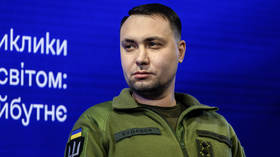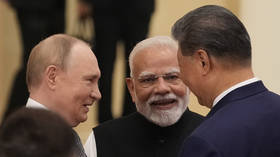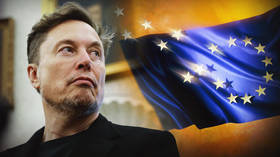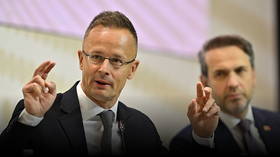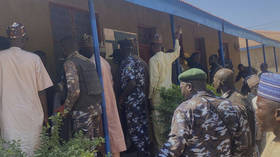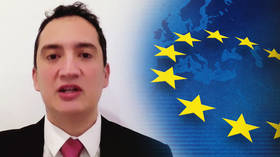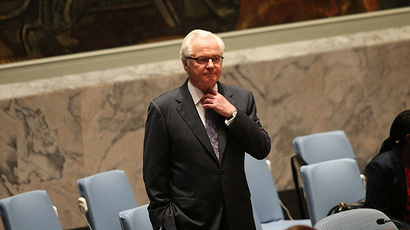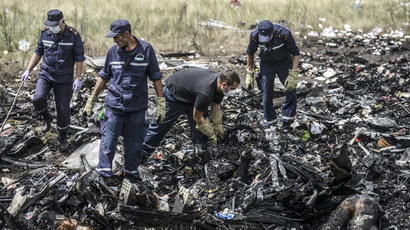Kiev scraps government, initiates early parliamentary election
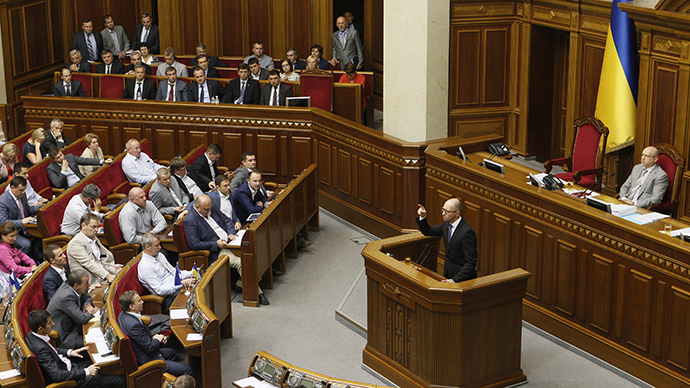
Ukraine’s ruling coalition has dissolved itself to trigger an early parliamentary election after the government resigned. The war-torn and impoverished country is to undergo a massive political reboot, which is expected to strengthen the president.
The nationalist Svoboda (Freedom) party, and the Udar (Strike) party of former boxing champion Vitaly Klitschko, had a majority in parliament, acquiring it in the wake of the February armed coup, which ousted President Viktor Yanukovich from Ukraine.
On Thursday, they announced that they were leaving the ruling coalition. Ukrainian law says that unless MPs manage to form a new majority of at least 226 representatives within a month, an early election would be called for.
This is exactly the result that the Udar and Svoboda factions want. In his inauguration speech, before the parliament, President Petro Poroshenko declared his intention to hold early parliamentary elections within a month. Udar are allies of Poroshenko, who has not got MPs of his own in the current parliament. The nationalists from Svoboda are expected to win more seats in the snap election, considering Ukraine’s current pro-war nationalistic moods.
The snap election may be held as soon as October 26.
Reds kicked out of parliament
An alternative ruling coalition is practically impossible to reemerge. The opposition Party of Regions, formerly for Yanukovich, was left bloodied by the Ukrainian turmoil, with dozens of MPs jumping ship. The only other opposition party in the current parliament, the Communists, had their faction outlawed on Thursday.
The controversial ban was hailed by Speaker Aleksandr Turchinov as “his historic mission.” Kiev justifies its crackdown on the communists by their “anti-Ukrainian” and “pro-separatist” campaigning. The party has been a vocal critic of many Kiev’s current policies, including the military crackdown on dissenting eastern regions, failure to investigate mass killings in Odessa and Kiev, and painful austerity measures required for Ukraine to receive Western loans.
The ban on the Communist party shows “a complete suppression if the democratic rights of people in Ukraine,” believes Caleb Maupin, a political analyst.
“All the members of Ukraine’s communist party have been beaten up on the floors of the parliament; fights are breaking out all the time. People are being suppressed,” he told RT.
According to Maupin, the bill won’t just ban the Ukrainian communist party but “ban the ideology of communism in Ukraine.”
“People of Ukraine should have a right to vote for the communist party. The communist party in Ukraine is not a small organization; it’s not a small isolated group. It represents millions of people.”
Government ‘did what it could’
Hours after the dissolution of the ruling coalition, Ukrainian Prime Minister Arseny Yatsenyuk resigned, saying that the parliament failed to pass legislation to take control over an energy crisis situation and to increase army financing.
“The coalition has fallen apart, laws haven’t been voted on, soldiers can’t be paid, there’s no money to buy rifles, there’s no possibility to store up gas,” Yatsenyuk said. “What options do we have now?”
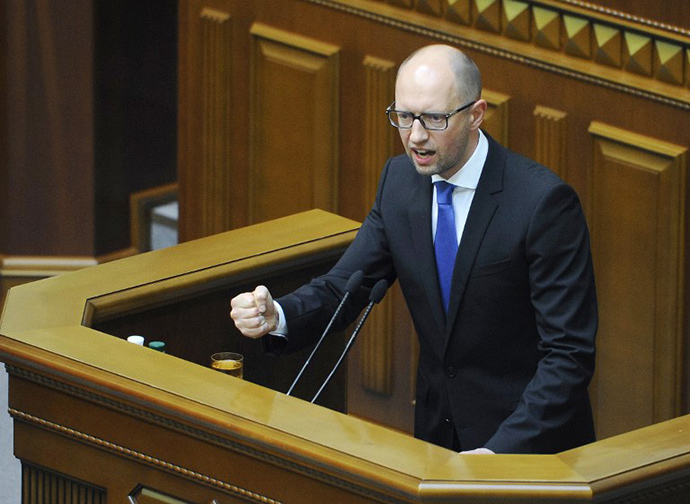
Yatsenyuk said that Ukraine was living through a critical time.
“This is a difficult decision and a difficult time, not for me personally, but for the country as a whole. Am I satisfied with my own work? Certainly not. But did we do everything we could? Yes, we did,” he added.
On Friday the secretariat of Ukraine’s Verkhovna Rada received the Yatsenyuk’s resignation, said the parliament’s speaker Aleksandr Turchinov.
The country has been weakened by economic instability, political tensions and crisis in its eastern parts that has already killed at least 250 civilians and wounded 850 more, according to UN figures. The collapsed infrastructure and Kiev’s anti-terrorist crackdown on the country’s east has triggered thousands to flee Ukraine and seek shelter.
On Thursday, Ukraine’s Finance Ministry said that the country’s budget has no money to pay for the military operation in the east after August 1.
“The one thing the political parties want to avoid is being blamed for the significant price hikes for utilities and gas,” Nicolai N. Petro, political science professor told RT.
“The problem is [that] Ukraine is running out of money. You have to fund the army. The money to pay its soldiers will run out next week,” he added.
According to Petro, there will be a political crisis and the EU “won’t support and disperse money to Ukraine indefinitely.”


